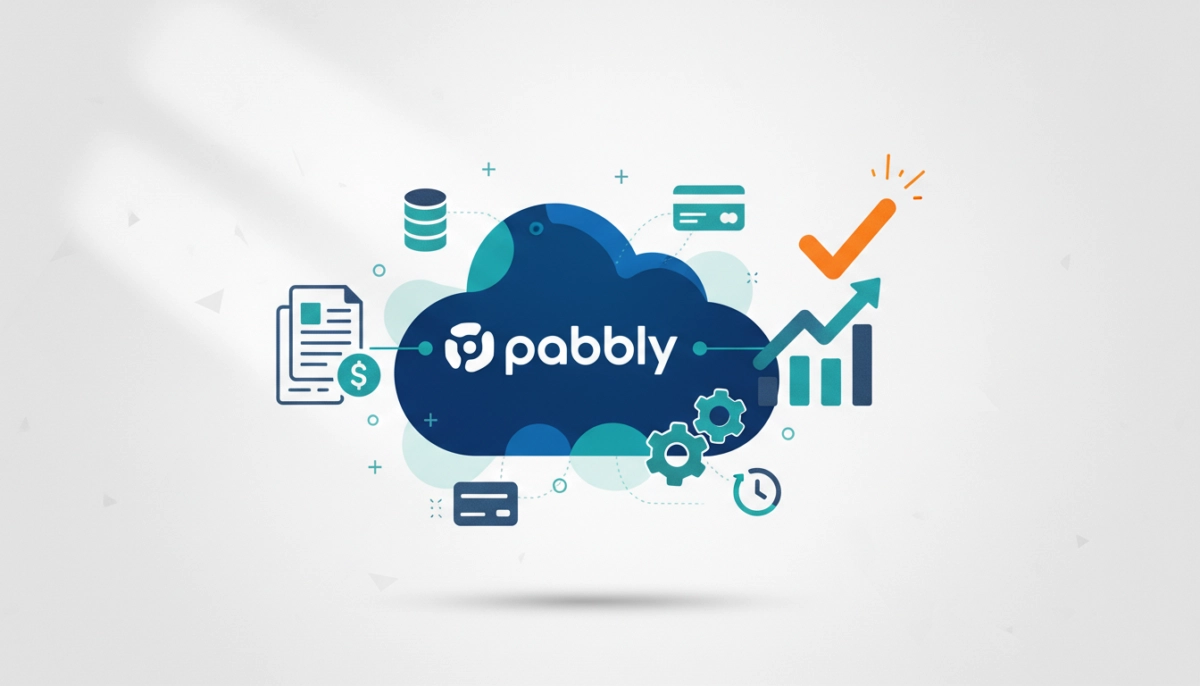The Importance of Networking for Freelancers
Networking for freelancers isn’t just about collecting business cards or sending out a flood of connection requests—it’s a dynamic, ongoing process that opens doors to new clients, referrals, and long-term business success. More than just a buzzword, a powerful network is often a freelancer’s most valuable asset, providing not only a steady stream of projects but also opportunities for learning, collaboration, and personal growth.
Whether your focus is local or global, every freelance career benefits from intentionally nurturing both online and offline connections. These relationships are crucial to expanding your client base, navigating challenges, and staying competitive in a crowded marketplace. The good news: networking doesn’t have to feel intimidating. With the right approach and some clear tips for freelancers, networking can be seamless, rewarding, and—dare we say—even enjoyable.
In this article, you’ll discover actionable networking tips for freelancers: how to build your presence, connect with the right people, leverage digital tools, and foster lasting client relationships. If you’re eager to expand your freelance career, these insights are tailored to help you take the next step. For even more inspiration, check out our piece on creative networking approaches for small businesses.
Building a Strong Online Presence as a Freelancer
Your online presence can be your digital handshake—a first impression for potential clients to discover your work and professionalism. In today’s freelance economy, maintaining visibility on key platforms is absolutely essential to growing your network and attracting quality projects.
- LinkedIn: A well-crafted LinkedIn profile acts as your online business card. Highlight your skills, experiences, and portfolio, making it easy for clients to learn about what you offer.
- Personal Website or Portfolio: A central hub showcasing your best work, client testimonials, and a professional bio delivers instant credibility. It also makes it easier for potential clients to find and contact you.
- Industry Forums & Social Platforms: Engage in communities related to your expertise—dribbble, Behance, Reddit, or niche Facebook groups—where meaningful discussions often turn into business opportunities.
Here are some steps for strengthening your visibility:
- Share your work regularly—post recent projects or insights to demonstrate your expertise.
- Engage with others’ content—like, comment, and share relevant posts to foster relationships within your industry.
- Optimize your profiles with keywords—think about what potential clients might search for, and use these terms in your profile descriptions.
- Be approachable—add a timely call-to-action inviting conversations, consultations, or project proposals.
An effective online presence not only boosts your visibility but also acts as a magnet, drawing the right clients directly to you. For deeper insight on harnessing tech for productivity and staying ahead of the curve as a freelancer, explore how technology enhances freelance productivity.
Leveraging LinkedIn and Professional Networks
LinkedIn and other professional networks are fertile grounds for freelancers seeking to expand their professional network and access quality clients. These platforms aren’t just digital resumes—they’re interactive environments where networking transforms into genuine business relationships.
- Profile Optimization: Use a professional photo, detailed summary, and featured projects or case studies. Make your skills and services clear at a glance.
- Connect with Purpose: Don’t just send random invitations—personalize connection requests, explain why you’d like to connect, and reference mutual contacts or interests where possible.
- Join Industry Groups: Participate in relevant forums or networking groups. This exposes you to discussions, job postings, and introductions that can lead to collaboration or new gigs.
- Engage with Industry Leaders: Comment on thought leaders’ posts, share resources, or initiate conversations—engagement helps you stand out and be remembered.
Done right, professional networking online isn’t just about presenting your credentials, but about building relationships and staying visible so you’re top-of-mind when the right opportunity comes along.
Interested in diving deeper? For more on making your professional networking efforts count, we recommend exploring the fundamentals of effective business networking.
Attending Industry Events and Virtual Networking Opportunities
Nothing quite rivals the impact of a meaningful face-to-face (or screen-to-screen) connection. Whether you attend local industry meetups, global conferences, or specialized webinars, networking events are crucial to expanding your visibility and building valuable relationships as a freelancer.
Why prioritize industry events?
- Direct access to peers and potential clients: You can learn about current trends and challenges, and often, find out about projects before they’re publicly announced.
- Relationship building: People are more likely to remember and hire someone they’ve interacted with personally.
- Insights and growth: Keynotes, panels, and informal chats spark new ideas and keep your skills relevant.
- Opportunities for collaboration: Meeting other freelancers can lead to partnerships or joint projects.
To gain the most from these events:
- Prepare your elevator pitch—a concise summary of what you do and who you help.
- Bring business cards (physical or digital) to share with contacts.
- Take notes and follow up with people you meet; a quick email or LinkedIn message soon after keeps the relationship alive.
- Look for virtual event platforms—many conferences now offer remote participation, allowing you to join global events from your home office.
Pro Tip: Attending events related to your niche (like marketing, design, or development-specific symposiums) leads to more targeted, fruitful conversations than broad business expos.
Tech is making virtual events more immersive and accessible every year. For more on how technology shapes networking opportunities, take a look at Smart Technologies in the Service of the Planet.
Joining and Participating in Freelance Networking Groups
When it comes to building your freelance network, joining dedicated networking groups—be it online forums, mastermind circles, or in-person meetups—offers a wealth of benefits that simply can’t be matched by going it alone.
- Collaboration: Networking groups often facilitate project collaborations, supporting members in finding partners for larger contracts or diverse skill requirements.
- Peer Support: Get advice on pricing, client communication, or overcoming freelance hurdles from those who have been there.
- Client leads: Many groups regularly share job posts, RFPs, and client needs; referrals within the group can be highly qualified and trusted.
To maximize your presence in these circles:
- Be consistent—respond to questions, share knowledge, and offer support.
- Share your work and availability when appropriate, but avoid being overly self-promotional.
- Leverage local meetups and global communities for a blend of personal touch and international reach.
Active participation in freelance networking groups helps you tap into a ready-made professional network, filled with both peers and potential clients. To connect globally and support a nomadic lifestyle, see our thoughts on digital nomads and the power of worldwide networking communities.
Mastering the Art of Referrals and Recommendations
Ask any successful freelancer: referrals are gold. When it comes to winning new business, a personal recommendation can open more doors than even the most polished sales pitch. Tapping into this network power takes intention and strategy.
- Deliver exceptional service: Exceed expectations, communicate clearly, and consistently deliver on promises—clients are far more likely to recommend you if you delight them.
- Ask for referrals: At the end of a successful project, don’t be shy about asking satisfied clients if they know anyone else who might need your services.
- Keep in touch with past clients and freelancers: A short check-in message can keep you top-of-mind if they hear of someone looking for your expertise.
- Make referring easy: Provide a simple email template or LinkedIn blurb your contact can use, saving them effort and making it more likely they’ll spread the word.
Strong referrals and positive recommendations are also key to building trust and credibility, often leading to long-term client relationships. For more on maintaining trust and professional rapport, read our guide on The Dos and Don’ts of Client Communication for Timely Payments.
Showcasing Your Work and Expertise to Attract Clients
When new clients contact you, they’re not just looking for a set of skills—they want to see proof that you can solve their problems. Showcasing your work is an essential way to demonstrate value, differentiate yourself, and attract projects tailored to your expertise.
- Portfolio Site: Create a visually appealing, regularly updated website where potential clients can browse your work samples easily.
- Case Studies: Go beyond images—explain the challenge, your solution, and the success metrics.
- Testimonials: Ask clients for brief feedback you can publish; real-world results convince prospects you’re the right fit.
- Social Proof: Share milestones and completed projects on professional platforms to boost your visibility.
Use your showcased experience not just for promotion, but as a starting point for networking discussions—people love concrete examples. For step-by-step tips on presenting your freelance work and building a professional image, see our guide to professional and branded invoices for freelancers.
Effective Networking Strategies for Freelancers (Online & Offline)
Successful freelancers know it’s not just about what you know, but who knows you and your expertise. Employing a mix of networking strategies both online and offline can help grow your contacts, boost your reputation, and ultimately win more clients.
- Leverage Social Media: Consistently share insights, join conversations, and connect with thought leaders in your niche.
- Cold Emailing: Reach out to potential clients with a personalized message explaining how your services can address their needs; avoid generic templates.
- Host or Join Webinars: Offer short, insightful sessions to showcase your expertise and connect with like-minded professionals.
- Provide Value First: Share tips, resources, or introductions freely. Being generous with your expertise builds goodwill and strengthens relationships.
- Follow Up: After meeting someone at a networking event or online, send a quick note to continue the conversation—relationship-building thrives on these small gestures.
These strategies work best when integrated into your daily workflow. For instance, utilizing tools that let you track who you’ve connected with, or automate invoice follow-ups, can ensure you don’t miss an opportunity. Curious about workflow tips? Check out best practices that utilize your invoice management system.
Tools for Freelancers to Build, Organize, and Manage Their Network
Keeping track of contacts, meetings, follow-ups, and proposals can quickly become overwhelming for busy freelancers—especially as your network expands. Luckily, a variety of digital tools are available to help you organize, automate, and maximize your professional relationships.
- CRM Solutions: Customer Relationship Management (CRM) apps such as HubSpot or Zoho help you organize contacts, schedule follow-ups, and keep detailed notes on each connection.
- Project & Proposal Integrations: Using a tool like Invoice Crowd enables you to link your invoicing, proposals, and client communications all in one place—making it easier to keep projects on track and clients happy.
- Scheduling & Automation: Tools such as Calendly or Acuity Scheduling make it simple for clients to book meetings. Combine with email automation apps to ensure timely follow-ups.
- Task & Document Management: Use Trello, Asana, or Google Drive to handle projects and documents collaboratively while maintaining alignment with clients or collaborators.
Use Case: Problem: Juggling proposals, invoices, and client correspondence in different systems can lead to missed deadlines and lost connections.
Solution: By integrating these processes into a single platform like Invoice Crowd, you can automate payment reminders, manage project scopes, and keep all client communication centralized—freeing you up for growth-oriented networking.
Building Long-Term Relationships and Client Loyalty
Securing your first project with a client is only the beginning. The real strength of a thriving freelance business lies in building a strong client base—cultivating ongoing, long-term relationships that grow with you over time.
- Consistent Communication: Keep clients informed during and after projects; a simple “checking in” email can do wonders.
- Personalized Touches: Remember important client milestones (like business anniversaries or launches) and send a quick note or congratulations.
- Deliver Value Beyond Expectations: Share relevant insights, offer suggestions for improvement, or connect clients to useful resources.
- Periodic Follow-Ups: Set reminders to touch base even when you’re not immediately working together—relationships built on genuine interest last longest.
Loyal clients bring repeat business, refer new contacts, and contribute to the stability of your freelance venture. For more on keeping your business healthy and maintaining productive client relationships, you can read our advice on managing your cash flow.
Conclusion – The Keys to Successful Networking for Freelancers
Building and nurturing your network is not just another item on your to-do list—it’s the core of a flourishing freelance career. The most successful freelancers blend a strong online presence, strategic use of professional networks, active participation in groups and events, and continual relationship-building to grow their client base.
Remember, every connection can lead to a new project, insight, or opportunity. Stay proactive: ask for referrals, showcase your expertise, and leverage digital tools to stay organized and client-focused.
Modern all-in-one platforms make it easier for freelancers to present a polished, professional image and manage their business seamlessly as they expand their network. Learn more about how Invoice Crowd can support you if you’re serious about scaling your client base while keeping your operations streamlined and stress-free.



